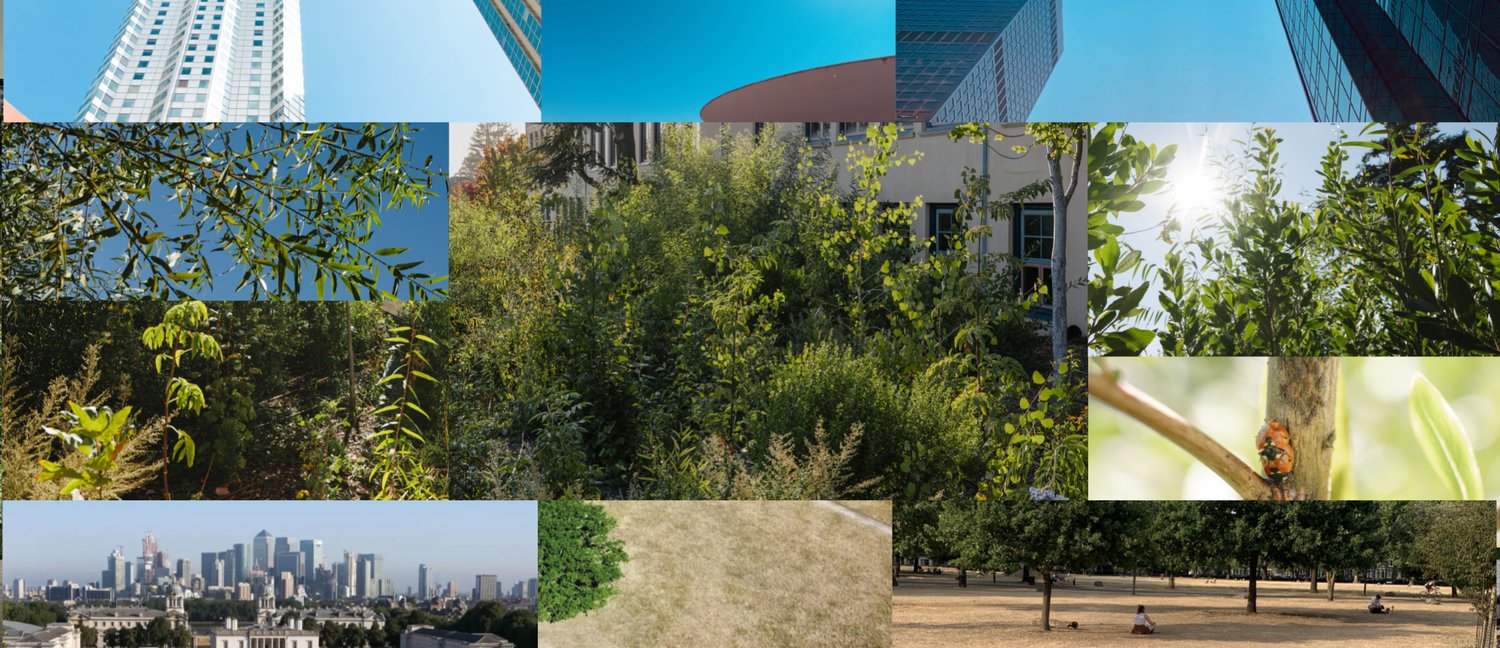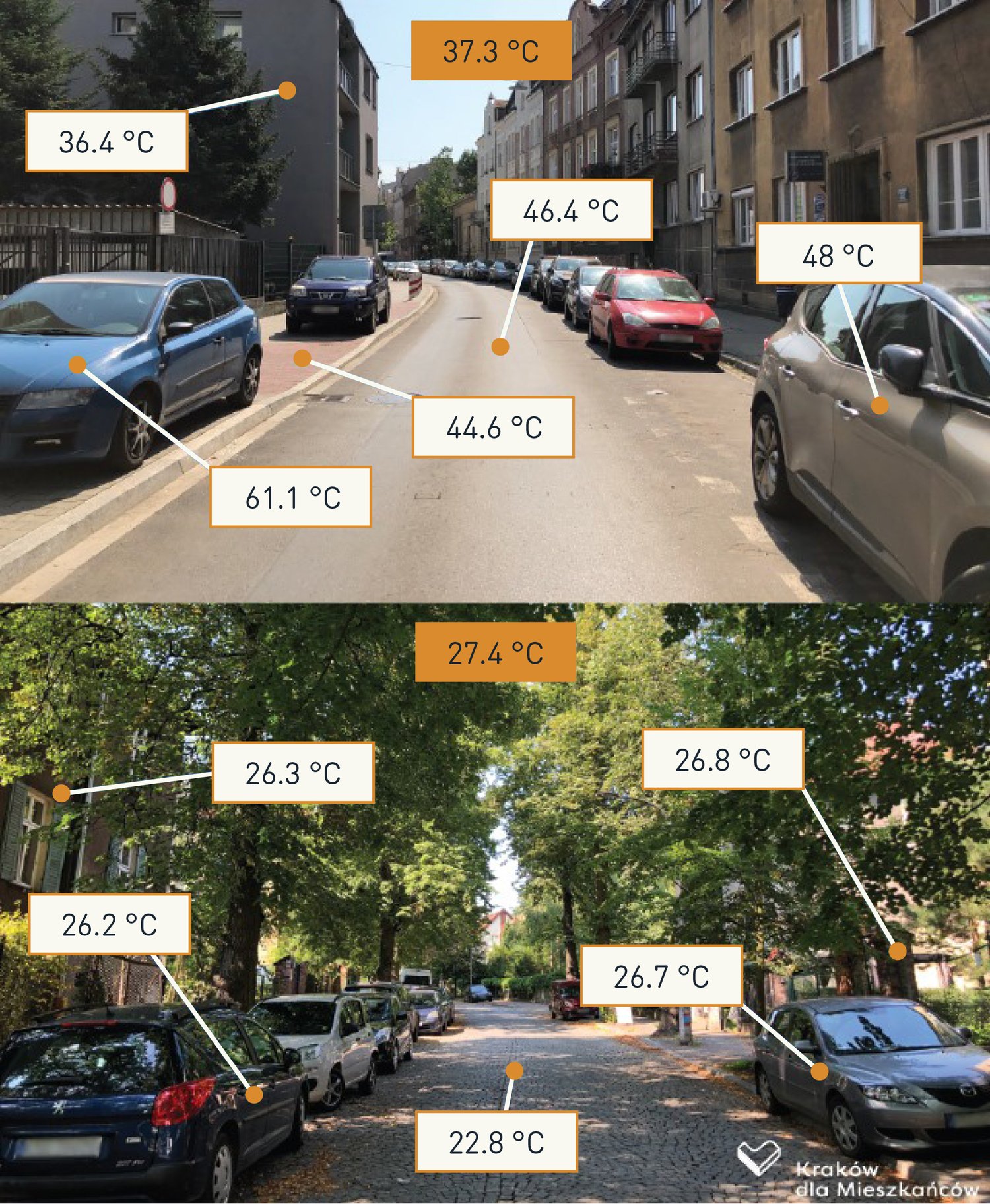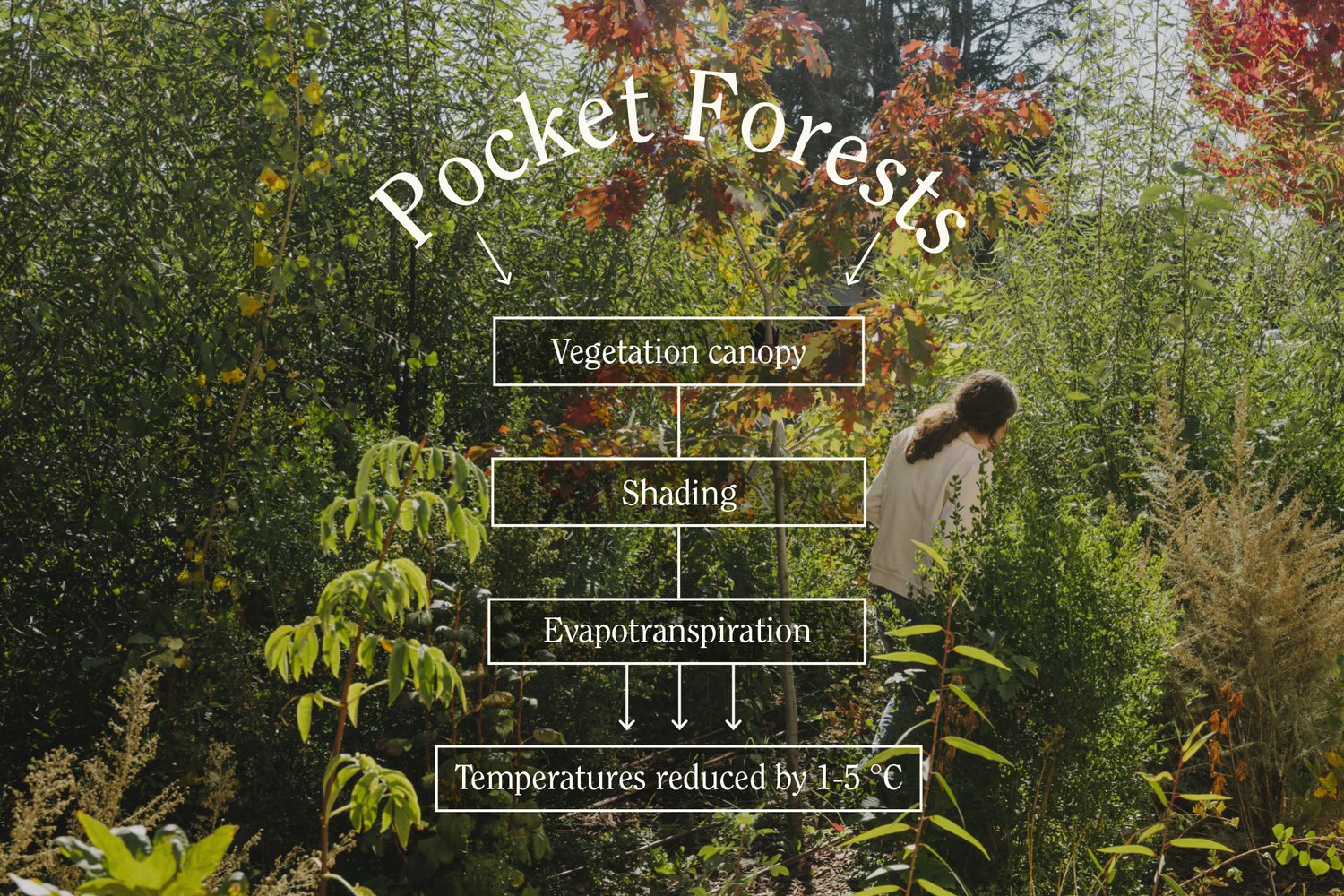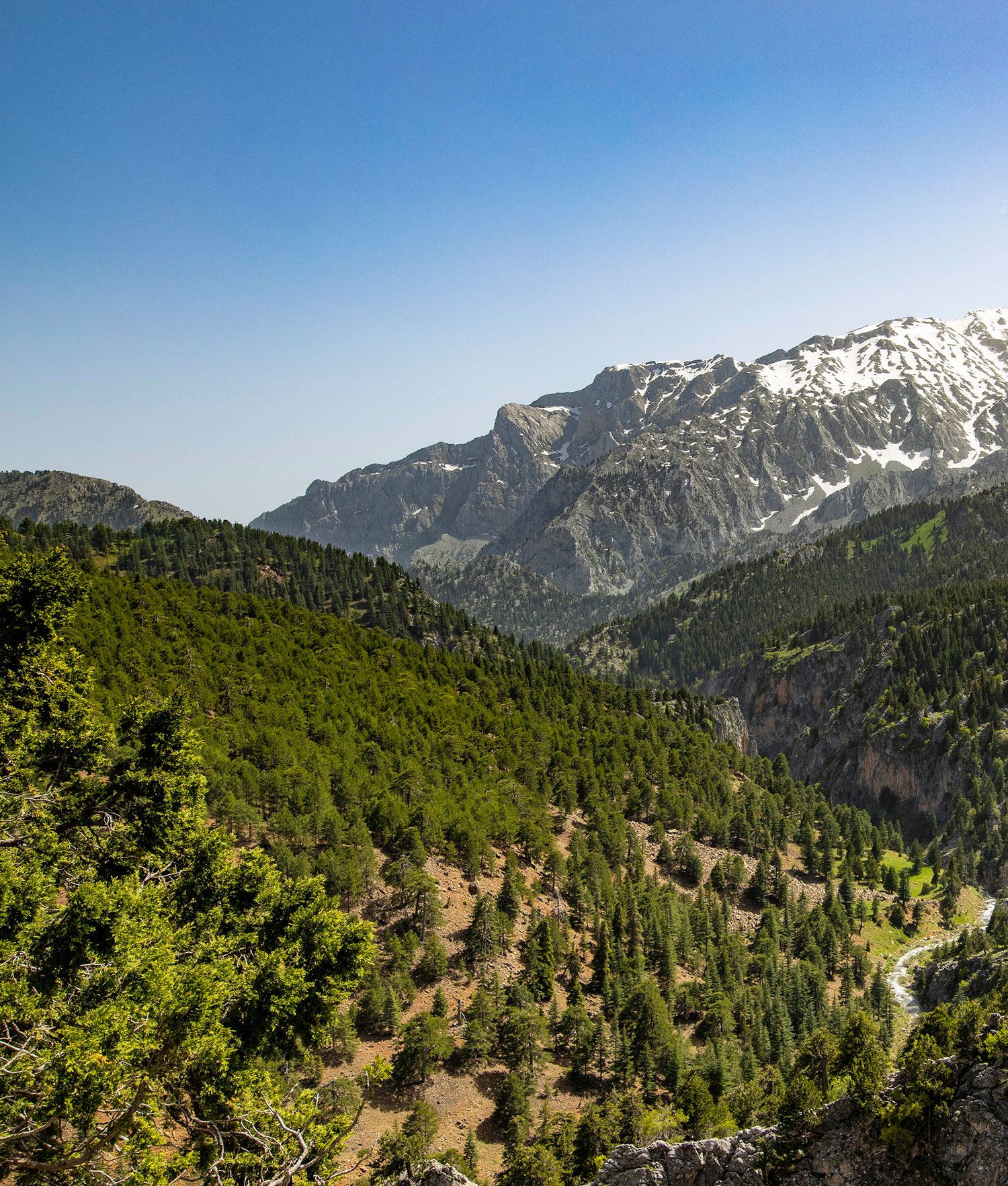
Insight
Pocket Forests cool cities.
Today, concrete outweighs the carbon mass of every tree, bush and shrub on this planet. The rapid greyification of our cities is causing them to be hit extra hard by the climate crisis.
The Urban Heat Island Effect already makes urban areas up to 12°c hotter than surrounding rural areas, and the UHI intensifies as natural land is replaced by non-vegetated areas. The rise in impervious surfaces is also causing increased surface water runoff and more flash floods.

Pocket Forests can reduce rising city temperatures through evapotranspiration and shading. Evapotranspiration happens through vegetation and water bodies. Just like how we breathe, plants transpire and water on the surface of leaves and soils evaporates. The warmer it gets, the more the plants cool the surrounding air. Evapotranspiration, combined with shading, can help reduce peak summer temperatures by 2-9°F (1–5°C).
Pocket Forests can create cool islands, this, in turn, reduces the need for air conditioning. “Through energy-saving, as well as other mechanisms such as carbon sequestration, urban green space also helps in climate change mitigation,” Professor Cecil Konijnendijk

Vegetated areas also reflect more solar radiation away from the surface than dark, artificial surfaces. We all know that it would be too hot to walk barefoot on the pavement on a sunny day, but not on the grass; this is because, as less solar radiation is absorbed, green spaces have colder surfaces.
Pocket Forests also provide shade, shielding surfaces from further radiation and reducing the energy those surfaces will absorb. “Vegetation and canopy cover help cool our neighbourhoods and can provide much-needed relief during heatwaves,” explains explains Prof. Konijnendijk. “People flock to shade
during hot days.”
“Trees typically have multiple benefits at the same time. We have to demonstrate these impacts in practice. Because seeing things with your own eyes is far more powerful than just research results in scientific articles.”
— Professor Cecil Konijnendijk — Director at Nature Based Solutions Institute




